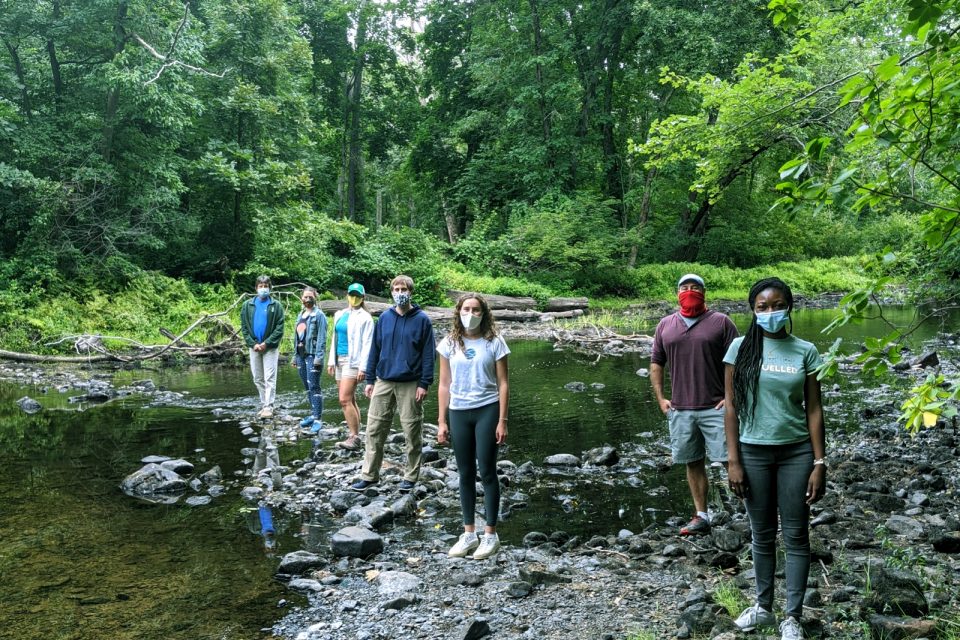Help the Ipswich River Get Off Most Endangered Rivers List
Monday May 10, 2021

The Ipswich River. Photo by Stewart Lytle
REGIONAL – It is not even summer, and Ipswich along with other North Shore towns are asking residents and businesses to limit the amount of water they use.
In Ipswich, forget watering your lawn except with a hand-held hose, washing your car and the outside of your home or filling your pool.
The reason is that the North Shore is again experiencing drought. The region has suffered two droughts in the last five years and may be headed for another one this year. Despite the rains of the last several days, the overall amount of precipitation is well below average.

That has made the plight of the Ipswich River even more dire. American Rivers last month named the Ipswich one of the nation’s most endangered rivers of 2021. It joins the Snake River in the far Northwest, the Lower Missouri, the Pecos River in New Mexico and the McCloud River in California.
As the main drinking water source for northeastern Massachusetts, the Ipswich River serves the water needs of 13 municipalities. About 165,000 people live in the river’s watershed, but more than 350,000 draw water from it. That, combined with climate change, which has brought on a series of droughts, has drained the river.
Wayne Castonguay, the association’s executive director, said, “American Rivers is sounding an alarm for our communities to collaborate and make decisions that protect the Ipswich River for generations to come.”
“There are too many straws stuck in it,” explained Patrick Lynch, the director of policy and planning for the Ipswich River Watershed Assn. “The system has gone haywire.”

Ipswich, Georgetown, Hamilton, Wenham, Middleton, Beverly, Topsfield, Lynnfield and Wilmington plus larger cities like Danvers, Salem, Peabody, Lynn currently draw water from the Ipswich River.
Residents in other towns located in the watershed, such as Boxford and Rowley, also pull Ipswich water through private wells,
Founded in 1977, the Ipswich River Watershed Association has 1,500 members, residents, scientists, businesses and community leaders concerned about the health of the river and its watershed.
This summer, the association is launching a new campaign to promote everyday solutions that residents can take to help the river survive. The Endangered Ipswich Campaign provides an opportunity for residents to take a lawn-by-lawn pledge not to water their lawns excessively or use toxic chemicals that can end up in the river. Residents can also help raise money for the river’s protection through the association’s Paddle-a-Thon, its signature fund-raising event. And they can join in letter-writing campaigns to state and local officials advocating to protect the river.
“This new campaign is a testament to the strength of local conservation groups and our vital mission to help the public learn more about what we can do in our own neighborhoods and communities,” said Susie Winthrop, the Watershed Association’s Board President. “Here on the North Shore of Massachusetts, we have a long tradition of trying to be good stewards of our environment. We talk with so many people about what we can do now that our climate is changing. Thankfully, we have a really amazing team working on solutions, but we need more people to take action.”
For more information, visit www.ipswichriver.org.
“Residents will cause change,” Lynch said.

Five years ago in the midst of a drought on the North Shore, state Sen. Bruce Tarr, R-Gloucester, created a North Shore Drought Task Force, which focuses on the Ipswich River. Legislators, local officials, water suppliers, regulators and stakeholders work together in this task force to identify options, build consensus and set the stage for productive action.
Tarr, the Republican leader in the state Senate, said the designation of the Ipswich as one of the nation’s most endangered rivers “is yet another compelling reason why we must be proactive in responding now to protect our drinking water supplies and the health of the river and watershed that supports them.”



